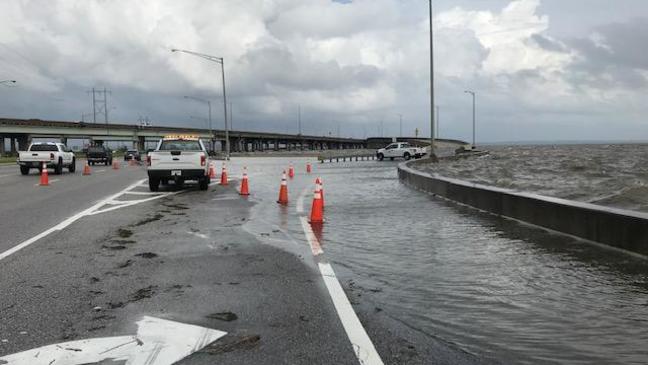
We are assessing the resilience of coastal transportation infrastructure to compound flooding in the Mobile Bay, Alabama, area to inform decision-making.
Why We Care
The coastal built environment can suffer extensive damage from hurricane-induced hazards, including strong winds, storm surges, waves, debris, fluvial (riverine), and pluvial (rainfall) flooding. These hazards trigger consequences that have far-reaching impacts on serviceability of critical infrastructure. When these flooding processes occur one after another, or at the same time, they can lead to compound flooding, which exacerbates the severity of flooding impacts. These challenges are expected to be further worsened by the impacts of extreme weather.
What We Are Doing
We are assessing the resilience of coastal transportation infrastructure to compound flooding in the Mobile Bay, Alabama, area. By leveraging the model results from another CIROH project, we are creating high-resolution flood hazard maps that account for the different hazard characteristics that can occur, along with the flood protections that existing or planned nature-based solutions can offer. Our enhanced model will evaluate the ability of people to use the transportation network (i.e., “serviceability”) during flood hazards and under future scenarios. We will run the model with stakeholder-informed mitigation strategies under a range of potential scenarios to help decision-makers prioritize pre- and post-disaster decisions in terms of loss reduction (economic) and improved post-disaster mobility patterns (transportation).
Benefits of Our Work
Our work will provide detailed information about the areas in Mobile Bay prone to transportation network disruptions and social impacts during compound flooding events, and the associated interruption to access critical infrastructure. The high-resolution maps can be used by decision-makers to identify areas requiring improvements in infrastructure, emergency response plans, and community resiliency strategies.
This project is led by Dr. Hamed Moftakhari at the University of Alabama and is part of the Cooperative Institute for Research to Operations in Hydrology (CIROH).
